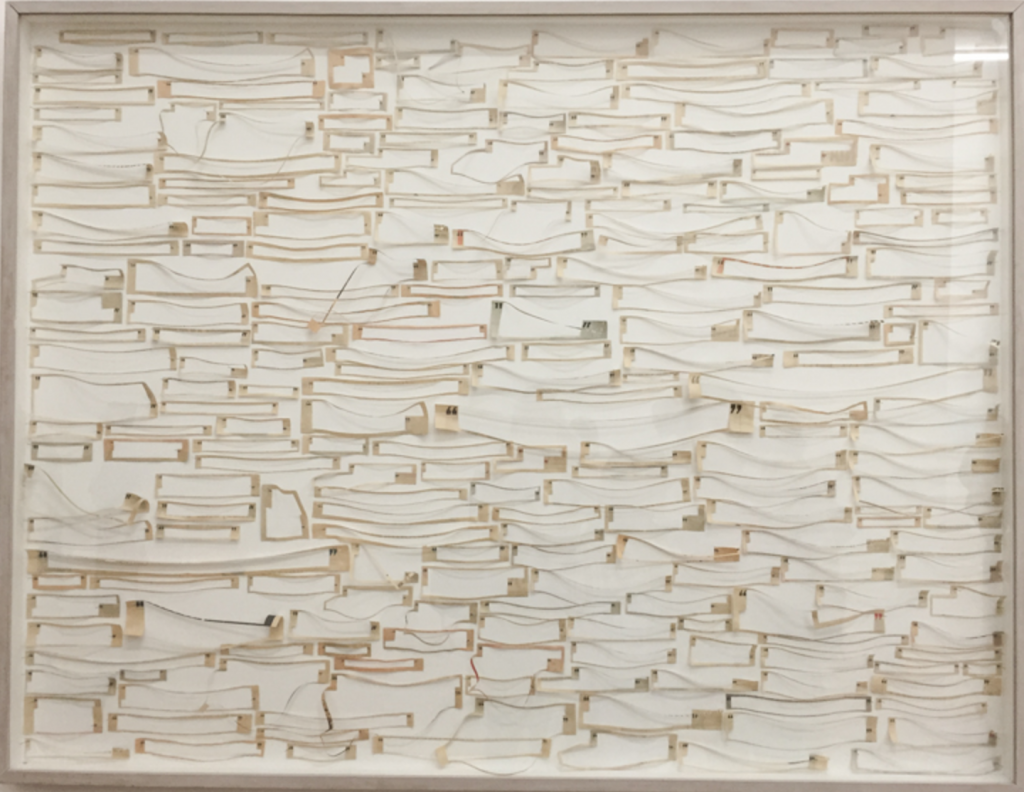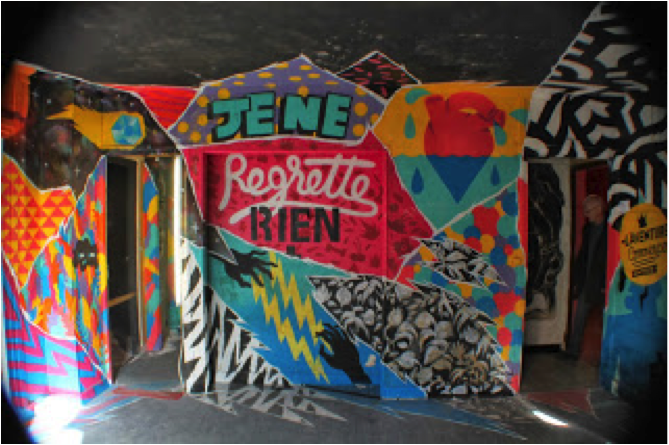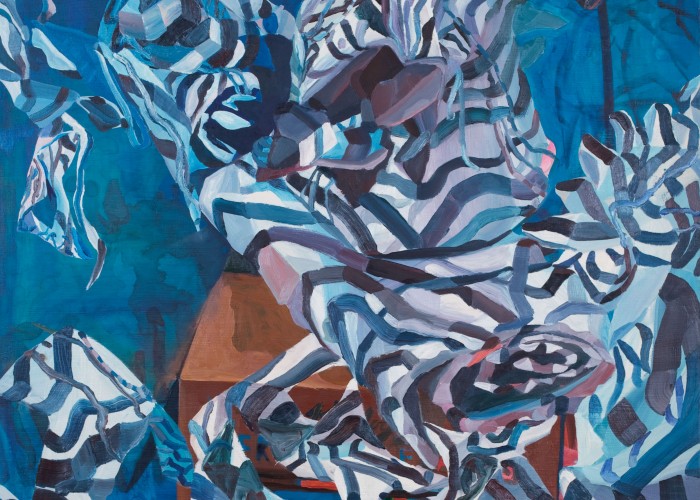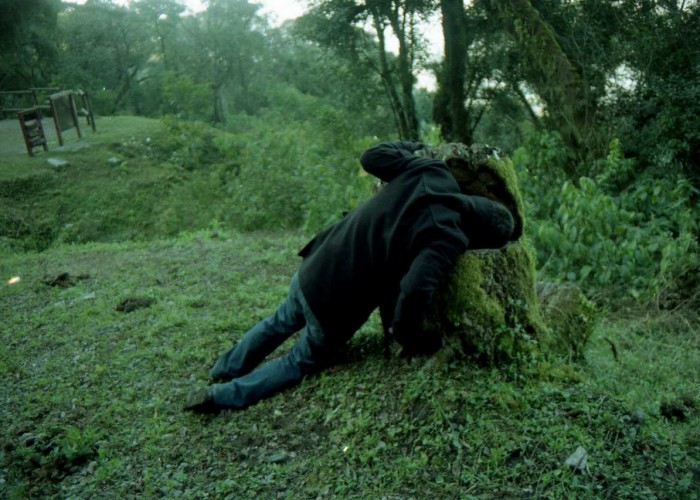Cardenio (excerpt)
Carlos Gamerro
They lived together on the Bankside, not far from the playhouse, both bachelors; lay together; had one wench in the house between them, which they did so admire; the same clothes and cloak etc. between them.
—John Aubrey, Brief Lives
ONE
October to November 1612
Letter from John Fletcher to Francis Beaumont, 31st October 1612.
My dear Damon,
I began work on our Cardenio yesterday with Will, or rather on Will with Cardenio, for I was forced to play the peddler and urge its many virtues and beauties, all but begging him to help me write it: to this state your desertion has brought me. The going was not easy, and he is far from won over yet. The story we so often read to one another with such delight and so dreamed of bringing on the stage, he took as a wary patient will a bitter pill: not to swallow, but to keep in the corner of his mouth, and spit out as soon as the doctor’s back is turned.
We sat in the poet’s nook, chilled to the bone, but the fire was out; darkling, yet no candles were lit; parched, and not a drop to drink; truly it had been a miracle if aught in our imaginations had kindled in a habitation so sober, sombre, and chill. Upon my suggestion we removed to our club-room at the Mermaid, where we warmed our bones by a sea-coal fire aided by two beer-glasses of sack, and talked of friends departed (mainly you, and Ben) and friends dead (mainly Will’s). Master Will Johnson sends his best regards and asks when will you be back with your pots of gold. ’Tis not easy, this having to begin anew; like lying down a scholar and waking up a schoolboy. It took me back to our Philaster days, nay, further back: for I find it hard to think there ever was a time when we two were twain.
But O what remedy. The Winter season is nigh, the Globe will soon close his doors, the Blackfriars open his, you have your wooing to do and your own masque to devise, and I have one more play to complete, which I cannot write on my own. I asked Jack about the contract: he said that as long as the play is ready for the Christmas season, he does not mind if I write it with my dog. I wish we owned one, for I believe his naked paw should prove more instrumental to the task than our friend’s empty glove. I fear me Dick is right: he seems to have lost all his fire for writing, as if his last had gone into the engendering of Caliban and his brood.
But this present burden, which I’ll gladly carry for your sake, dear friend, may prove a benefit in the long run. For who do you think will take his place, when he be gone? Dick loves Ben’s plays, but the bear himself he’ll keep at bay—particularly since Ben tried to school him in the speaking of his verse. Occasion must be seized by the forelock. So what do you say? Shall Olympus by Pelion piled on Ossa be overtopped? What would you rather inherit, a few acres in Kent or the roundness of the Globe?
Joanie bids you be wary of chills, draughts, and wetness, whether from downpours or drabs. She has been much given to moping lately. Yesterday she broke another cup, the one we liked to think of as yours. There will be a new one awaiting your much longed-for return.
Your (fleetingly) faithless shepherd,
Pythias
Conversation between John Fletcher and William Shakespeare. Blackfriars Theatre, London, 30th October 1612.
JF: They find him in the bowels of the mountain, thick-bearded, bare-headed, and exceedingly toasted by the sun. A wild man, leaping barefoot from rock to rock, as nimble as a goat and in apparel all torn: but his rags are holland and his tatters velvet and lace. By this they imagine him to be the owner of the dead mule and the rotting portmanteau they found in the ravine. They learn from some local mountaineers that he arrived some six months ago, demanded of them which was the most secret and inaccessible part of the mountain, and has dwelt therein ever since, spending his days in the roaming of the forests and the procurement of bread when he has his wits about him; in the tearing of his hair and the cursing of his fate when he does not. His meat he sometimes begs of the mountaineers with humble and courteous speech, and receives with tears of gratitude; but when he is taken with his fit of madness he will snatch it with curses and thank it with blows. When the knight and his squire finally come upon him he is in one of his meeker, yet not untroubled, moods, for he approaches with much biting of his lips and bending of his brows, muttering to himself and fixing his eyes on the ground. After eating of what Sancho and his master offer, he agrees to tell his story. His name, he tells them, is Cardenio; his place of birth, one of the finest cities of Andalusia; his lineage noble, his parents rich, and his misfortunes so great as neither birthplace, cradle, nor wealth . . .
WS: Spare me, Jack.
JF: I’m sorry. To be brief, then, this Cardenio loves a maid called Lucinda, has loved her since early childhood, she loves him back and is willing to marry him, they are both equally noble and rich, they have secured her father’s consent . . .
WS: So? What stands in the way of their perfect happiness then?
JF: A trifle merely. The girl’s father would have the suit directly breathed to him; by the lad’s father, that is. This condition seeming entirely reasonable and appropriate—Cardenio sets off toward his father’s rooms full of courage and resolve—which presently begin to drain from him, and drop apace, as if the very earth were sucking the blood from his legs. He knows not why, but he fears that his father’s consent, freely offered when unsought, will be, upon the asking, promptly withdrawn; that he will object, if not to the match itself, to the manner, or the occasion, or the wording of the request; the which his mind feverishly begins to rehearse, answering objections yet unborn and parrying the thrust of unsheathed swords. He will be made an object of scorn, and mocked out of his suit, thus: Consent? Why certainly, boy. If you have her consent, why would I deny you mine? I can give as freely as she. My only scruple, dear son, is this: having secured her consent, how, pray, shall you sequester it from the rest of the world? For thou must needs consent that whosoever shall consent to thee will consent to any other as well.
WS: Jack . . .
JF: Yes?
WS: You’ve been writing already.
JF: Well, you know, a line here and there. When they come of their own accord . . .
WS: So why not keep going?
JF: Will, dear Will, sweet Will, you know I don’t like working on my own. I tried it but once, and you saw the result.
WS:I didn’t, but I heard about it. How about The Tamer Tamed? I thought Frank had no hand in it.
JF: We rough-hewed it out between the two. But the actual writing fell to me, yes.
WS: No wonder it was any good. And how goes his new venture? Found he his perfect little heiress yet?
JF: He did. Far from perfect, he says, but better than writing for the stage.
WS: I can see his point. The question still remains, why me? I am not one for this twinned writing, as you might know from Tom.
JF: Who, Kyd? I’ve seen his Spanish Tragedy. Was your hand in it?
WS: No. That was Ben. He added some stuff, and probably scanned the whole for faulty lines. Ha! Tom Kyd, that was a one-hit wonder if I ever saw one. Hieronimo, go by, go by! No, I meant Tom Middleton. We worked together on Timon. So to speak. He’s fast, and needs the money.
JF: He needs it too much.
WS: True. Surfeit makes your poet slothful and hunger makes him overhasty. The happy mean is in slender but sufficient means. What about Jack Webster? Or Ben?
JF: Ben. You want me to write with Ben. I’d rather be yoked head to tail with an angry bull. Or lie in bed with the fretful porpentine.
WS: You’ve had stranger bedfellows.
JF: Now don’t you get started. Go to, Will, you know I’ve always wanted to do this with you.
WS: Not when Frank was around.
JF: That’s different.
WS: In what way?
JF: In as many as you can fancy and I not tell.
WS: Very well then, perhaps there is something you can tell.
JF: That being?
WS: Did Dick send you?
JF: To what end?
WS: You know. Good old Will’s lamp is spent. We must pour some fresh oil into his veins. New ink for old.
JF: Will . . .
WS: His pen will not rise to the occasion. We’ve a shotten playwright on our hands.
JF: You do me wrong, Will.
WS: You’re not answering my question.
JF: ’Tis I will reap the fruits of this our joint labour, I well know that. I know you don’t need me, Will. But I need you. Of course I didn’t when I had Francis. I’ll freely grant you that. But I don’t have him now. Help me out this once and I promise I’ll not trouble you again.
WS: So?
JF: So what?
WS: So what did his father say?
JF: Whose father?
WS: The what’s-his-name. The lad’s. Does he have a name?
JF: Cardenio.
WS: I mean the father.
JF: Not in the book. I thought we might call him Camillo. O, but you’ve used that, or do I mistake? Where was it?
WS: The Winter’s Tale.
JF: To be sure. Of course we can change it if you don’t want to repeat yourself.
WS: Let me warn you, Jack. I’m far from won yet.
JF: But you will be, as soon as you hear the rest. It’s an amazing book, Will. You should read it yourself. Ben has a copy in his library.
WS: He gave you a free pass, did he? Lucky you.
JF: It was Francis wrenched it from him. ’Twas not easy.
WS: Thanks for the offer, Jack, but I have not your Spanish.
JF: O no, before sailing for France he purchased the translation, you know, the one by Thomas Shelton, newly published by Blount.
WS: Who is this Shelton, by the way? Irish, is he?
JF: All too Irish. His brother was hanged for a traitor in one of the Tyrone rebellions, I forget which. He fled to Spain, and studied there. Ben claims to have met him in the Low Countries, says he plies both sides. But you know Ben. Shall I fetch you his copy then?
WS: Not for the moment, thank you. I’d rather hear it from your lips. Let’s get back to the lad and his father then. Was it as bad as he anticipated?
JF: Worse. For Cardenio finds him standing, holding a letter, the which he hands to him. This letter is from the Duke of those parts, and bids Cardenio presently repair to his court, that he might be companion to the Duke’s elder son. Dumbstruck and confounded he takes his leave: he well knows that he can as little oppose his father’s will as his father can the Duke’s; and even had he the courage, how would he be granted his suit, after refusing his father’s, and the Duke’s? Sorely troubled with such thoughts, he repairs to his beloved’s. Here I see a pretty parting scene. I was thinking we could place her on the upper stage and have Cardenio climb up to the balcony . . .
WS: I may have seen it done before.
JF: Where?
WS: A forgotten play. Romeo and Juliet, by one William Shakespeare.
JF: Yes, I seem to remember it. Let them meet on the main stage then, where we’ll have us many tears, oaths, and protestations, much kissing and holding of hands through cruel iron grates, and off he goes. Next scene, he is at the Duke’s. But, surprise! It is not the elder but the younger son of the Duke, Don Fernando, who takes to him, and soon they are the closest of friends.
WS: How close?
JF: Close enough to have no secrets: at least on Don Fernando’s side, for by the sacred laws of amity he holds it not lawful to keep anything concealed from his friend. Cardenio agrees, in so far as it comes to lending ear. When it comes to giving tongue, he’s more remiss.
WS: A lad most prudent.
JF: This being his idea of frankness between friends, when one is vassal and the other lord—a narrow street at best, that allows traffic to go but one way. He thus learns that Don Fernando is in love with a very beautiful, discreet, and honest country wench, of parents low in birth but in fortunes wondrous rich.
WS: Always a good combination.
JF: He woos her with all the enticements that wit and lust together can devise, but seeing that none will persuade her to surrender her fortified castle, at last he resolves to ask her hand in marriage. Cardenio does his utmost to dissuade him, but seeing all his entreaties fall on deaf ears, he determines to acquaint the Duke with his son’s purpose.
WS: Some friend.
JF: He’s a lad will stand in awe of authority, ’twould seem. Anyway, Don Fernando prevents this by suggesting they repair to Cardenio’s city, telling his father it is to see and price certain horses, and his friend that he is determined to follow his counsel and forget the wench. In this, at least, he did but speak the truth.
WS: Meaning?
JF: He had already enjoyed her.
WS: I’m beginning to like him. Why not make him the hero of the piece?
JF: Is that an offer?
WS: More like a thought.
JF: It sounded like an offer to me.
WS: When I’m making one, I promise you’ll be the first to know.
JF: Thanks. Vouchsafe me the lighting of this match. Will you have any?
WS: I’m no great lover of tobacco, as you well know.
JF: This is your right Trinidado, it beats your Sancto Domingo and your Nicotian any day of the week.
WS: Very good for choking a man and filling him with soot, I’m sure. Pray proceed.
JF: Cardenio is of course delighted, as this not only offers him a way out of his perplexity but allows him speedy passage back to his beloved. So overjoyed is he, that on the way, and following that very same law of friendship that Don Fernando had previously invoked, he tells him all about his love for Lucinda, dilating on her beauty, wit, and discretion, thereby stirring in Don Fernando a great desire to view a damsel so richly endowed.
WS: I think I begin to see where this is going.
JF: By the light of yond same candle you will.
WS: And what candle might that be?
JF: The same one Cardenio, at his friend’s entreaty, holds to Lucinda’s figure and face, while they converse together at their usual window and Don Fernando, a silent witness to their tryst, hides in her garden and gapes, ravished and beside himself. Henceforward he will let no moment pass without making some mention of Lucinda, begs of Cardenio that he should let him read all missives passing between them, and will not suffer the two lovers to meet unless he be privy to their every word and deed. Perusing one of their letters, Don Fernando learns that Cardenio has not yet secured his father’s consent, and offers to speak for him; to the which offer Cardenio readily consents, near to weeping with joy and relief; so, when Don Fernando asks him to repair to the Duke his father’s to obtain some money for the horses he means to purchase, he is filled with joy at being able to repay with so small a favour his friend’s great boon. Back at the Duke’s, Don Fernando’s elder brother bids Cardenio wait at court until the brother can raise the money for the horses, and still he will obey, and still will not suspect, until, on the fourth or fifth day, a man from his city arrives at the door of his chamber, bearing a letter endorsed in a hand he knows all too well, and it is with badly shaking fingers that he manages to open the letter and discover what the whole playhouse, save himself, has guessed by now: as soon as Cardenio was out of the way, Don Fernando approached Lucinda’s father and demanded the maiden for his wife; and the good man had agreed to his demand, in so good earnest that the wedding was to take place before two days. At this, Cardenio feels entitled to depart without requesting the brother’s permission—
WS: How very daring of him. The mouse has sprouted a lion’s mane.
JF: —and, riding like the wind, he arrives at his own city in time to find Lucinda in her wedding weeds, sitting behind their wonted iron grate. She weeps for joy, for her greatest fear was, she says, to depart this world without ever seeing him again. When he asks her what she means by this, she shows him a poniard she carries about her with which, should all her reasons and persuasions fail, she will, by taking her own life, put an end to Don Fernando’s intent. Then she is called away: the bridegroom awaits. Cardenio manages to steal into the house unseen, and, concealing himself behind a piece of tapestry, he makes ready to be witness to either her treachery or her faith. He watches Don Fernando strut into the hall, in his best array; and then Lucinda walks in, richly decked in carnation and white. Never before had she seemed more beautiful to him than now that he is about to lose her to one of his two rivals, his treacherous friend or death.
WS: And he is actually hoping she will stab herself.
JF: It would seem so.
WS: Interesting. And does she?
JF: He closes his eyes for a second and can actually see, vividly, the swift flash of her blade, her silent collapse into the folds of her crumpled dress. So when he hears her dismayed and languishing “I will,” he at first thinks his ears have deceived him, as well as the eyes that open to see Don Fernando slide onto her willing finger the golden ring. At this she falls, as if struck by a bolt from heaven, and when somebody, let it be her father, or some nurse, unclasps her bosom, out falls a folded paper which Don Fernando seizes on and reads, seemingly indifferent to his wife’s fate. Taking advantage of the uproar, Cardenio adventures to steal away, bearing the resolution, if he were perceived, to do such things as all the world should understand the just indignation of his breast.
WS: Of course he would. Too bad his chance always seems to slip away.
JF: Away he goes, unseen and unheard, recovers his mule, rides out of the city, and travels all night. By dawn he reaches the mountains, through which he travels at random for three days, until his mule falls dead under him, to rid itself, he believes, of so vile and unprofitable a burden as he. And in such solitudes he has dwelt ever since. The shepherds that feed their flocks in the mountains, moved by charity, provide his sustenance and musical accompaniment to his sonnets and songs, which he either sings in a plaintive voice or engraves on the rinds of trees—
WS: Tarry a little. Did I hear rightly? Flocks? Shepherds? Sonnets? You are not thinking of writing another pastoral, are you, Jack?
JF: I would not call it a pastoral, not exactly—
WS: I’m out.
JF: Will, listen, it’s just a couple of scenes—one.
WS: No, you listen to me. And look at me. In the eye. No more sonneteering shepherds, or shepherdesses, faithful or otherwise. No more sheep. Not even a strand of wool.
JF: This by the man who wrote that wonderful scene with Perdita, Autolycus, and—
WS: That’s just it. That was a pastoral scene to end all pastoral scenes. Well, at least it was longer than most—except, of course, whole pastoral plays like yours. When I managed to put an end to it I swore, on my mother’s grave, and on my father’s, and on my brothers’—
JF: I’ll tell you what. I’ll do them.
WS: Jack, why do this to yourself?
JF: I know not what you mean.
WS: Who’s going to write the commendatory verses this time? Ben is away, and Frank appears to have other concerns, and it would not look good if I did, being second father to the piece—that, if you manage to talk me into it, your prospects not appearing to be the best since the bleating began.
Ed Thompson: Master Shakespeare . . .
WS: What now?
Ed Thompson: The players are ready, sir.
WS: What is it to me? It was Dick’s turn today. Is he not here?
Ed Thompson. No, sir.
WS: Why, a pox on him! Where is he?
Ed Thompson: I don’t know, sir.
WS: Jack, let me sort this out, and as soon as I do, let us away from here, somewhere far where I can least be found when I am needed most.
* *
Cardenio, which centers on Shakespeare’s mythical lost work, was written originally in English and then translated into Spanish by the author. The novel was published in 2016 by Editorial Edhasa.
* *
Image: Jorge Macchi, “The Speakers Corner”
[ + bar ]
Prairie Lights [iowa city]
Hugh Ferrer
For as little as $140, anyone now can now buy his or her own little bookstore—for that is essentially what an e-book reader is: a combination... Read More »
The Teachings of Tour13
Caitlin Bruce
Tour Treize is a former HLM (Habitation à Loyer Modéré or rent controlled housing) building that has been turned into a 360-degree art space, covered... Read More »
Your Lying Cheater’s Heart
Carmen María Machado
Junot Díaz’s This is How You Lose Her as a Confessional Text
The confessional text—either an author baring his own soul, or a... Read More »
Ariel Schettini
translated by John Oliver Simon
SHADE SAILS
Not poppy, nor mandragora, nor all the drowsy syrups of the world, Shall ever medicine thee to that sweet sleep Which thou... Read More »

![Prairie Lights [iowa city]](http://www.buenosairesreview.org/wp-content/uploads/jlc-Prairie-Lights-Facebook-Photo-700x500.jpg)






 sending...
sending...